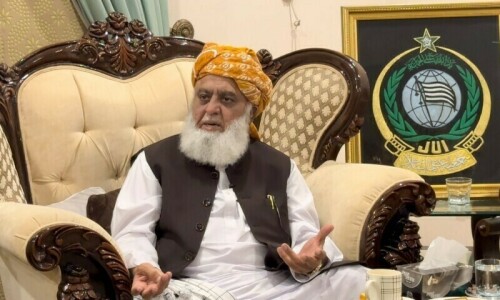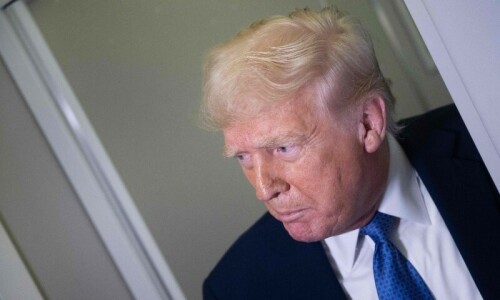ISLAMABAD: The entire sugar industry, including family members of Pakistan Tehreek-i-Insaf (PTI) leader Jahangir Khan Tareen, opposition leader Shahbaz Sharif and federal minister Khurso Bakhtiar have challenged in the Islamabad High Court the investigation report of the Sugar Inquiry Commission that blamed them for misuse of public money and cartelisation leading to massive price hike of the commodity in the country.
IHC Chief Justice Athar Minallah will take up the petition for hearing on Thursday (today).
The petitioner included Pakistan Sugar Mills Association (PSMA), sugar mills owned by Jahangir Khan Tareen and his son Ali Khan Tareen, Suleman Shahbaz Sharif, the son of opposition leader Shahbaz Sharif, Makhdoom Omer Shehryar, brother of Federal Minister for Economic Affairs Makhdoom Khusro Bakhtiar, PTI leader Sardar Ali Raza Khan Dreshak and other influential industrialist and political figures.
According to the report, Pakistan exported more than four million tonnes of sugar over the past five years and more than Rs29 billion had been given to sugar mills in terms of export subsidy.
“Exporting sugar with subsidy means that we are exporting the commodity on international rates which are lower than the cost of production claimed by sugar mills and the difference is being paid from the taxpayers’ hard-earned money,” the report said.
IHC Chief Justice Athar Minallah will take up the petition today
The commission, headed by director general Wajid Zia, which investigated the sugar scandal, had also observed that during 2017-18, Rs10.7 per kg subsidy was granted by the Economic Coordination Committee (ECC) of the cabinet only for export of two million tonnes of sugar (Sindh was granted additional subsidy of more than Rs4bn). A decrease of Re1 per kg of subsidy meant saving of more than Rs2bn. Even if observations of the Finance Division were to be ignored and only adjustments of Rs5.10 per kg considered, this would have saved more than Rs10bn. The major export subsidy was availed after January 2018. Therefore, timely intervention could have saved billions of rupees for the national exchequer.
The petition claimed that the scope of the report “exceeds the constitutional mandate and limitations of a Federal Commission of Inquiry constituted under the 2017 Act, as it trespasses into matters within the exclusive legislative and executive domains of provinces”.
It claimed that “at the relevant time, the federal government and the government of Punjab decided that it was in the best interest of the country that export of sugar be allowed and encouraged through grant of subsidy to earn foreign exchange of the country”.
It said that sugar manufacturers were at various times obligated to charge extra sales tax over and above the normal rate of sales tax for sales or unregistered persons to deposit the same in the government treasury, which they fully complied with.
In response to the commission report that “sugar mills have indulged in hoarding of stocks in order to manipulate the price of sugar”, the petition stated that this is because of “lack of understanding of its members as regard to normal transactions that take place in the markets for all commodities. Forward contracts are the norms not only in the national and international markets for sugar but in the markets for all tradable agriculture commodities and minerals including petroleum and natural gas.”
With regard to the allegation of excessive profit earned by sugar mill owners, the petition claimed that it was based on “misconception as regard the law, accounting norms and facts as well as the basic principal of demand and supply that determine the price”.
The petitioners requested the court to suspend the commission’s report and sought direction from the court to restrain authorities from registering criminal cases against owners of the sugar mills as recommended by the inquiry commission.
Published in Dawn, June 11th, 2020















































